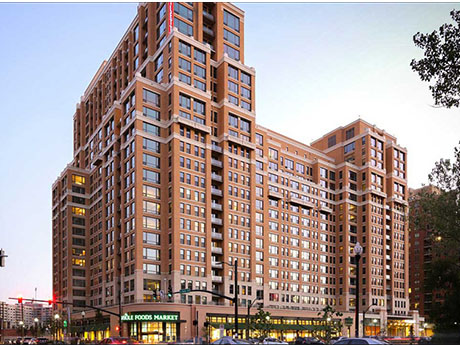By Ben Johnson, founder & president, Spruce
It’s no secret that the U.S. economy is in the midst of a very turbulent period. Businesses of all sizes and types are experiencing adverse pressures like never before and seeking ways to cut costs and increase revenue wherever possible.
The real estate market, including the multifamily industry, is no exception. With fewer people able to buy homes due to skyrocketing mortgage rates and minimal inventory for sale, more people are turning to apartments. As renting by necessity grows, residents are looking for the highest value from their rental experience.

Ben Johnson, Spruce
Consequently, multifamily owners and operators are now putting a bigger emphasis than ever on tenant retention by asking why high retention rates are important, how they can be maintained and what some alternative options are.
Why Retention Matters
Many of the hottest multifamily markets in the country have seen annual rent increases well over 20 percent over the last year, and several markets have even seen increases exceeding 30
percent.
While this growth is a boon for existing owners, it begs the question of whether these increases are sustainable, or if the next several years will usher in below-trend increases. Why is this important? In an environment of flat or falling rent prices, retention becomes a critical focus for the multifamily industry.
In addition to below-trend rents, shadow turnover costs are top of mind for property managers. Most pro-forma financial models for multifamily projects underestimate the true cost of turning over a unit. It isn’t difficult to forecast lost revenue and maintenance fees; however, it is much more difficult to anticipate and accurately quantify additional costs.
For example, how much time does your onsite property management team spend on a turnover? In a world where properties are keeping fewer staff members onsite, outsourcing certain functions, going virtual with tours or only opening the office a few days per week, the real cost of turnovers becomes more apparent.
Higher interest rates also mean a slower acquisition and development (A&D) market. With interest rates up more than 100 percent in the first nine months of 2022 — and more rate hikes likely to follow before 2023 — the A&D side of the multifamily industry has slowed considerably.
Property managers will be on longer holds, regardless of how far in advance they originally planned. Merchant builders, repositioning investors or any other owners with shorter hold periods will be forced to adjust their key metrics. Retention rates are absolutely one metric they will need to look at more closely.
Property Differentiation
When thinking about amenities, there are those that directly contribute to successful new leasing and others that assist in the retention of residents.
For example, prospective renters tend to think they will use the gym more often than they actually do — a good example of an amenity that will help drive new leases. That’s not to say having a gym isn’t important. However, to retain residents after their initial lease term, property managers must shift their focus to amenities that make renters’ day-to-day lives better.
For starters, fiber internet availability has become increasingly important. Cable, ethernet and one gigabyte networks no longer cut it for today’s apartment dwellers. Property managers are quickly discovering that renters won’t tolerate anything less than a complete fiber internet setup.
Services also play a key role in retention. Spruce research found that 95 percent of participants agree that when selecting an apartment, a unit that offers opt-in access to onsite lifestyle services (such as housekeeping) is important.
Additionally, residents who use housekeeping services offered through their property are 60 percent more likely to renew their leases than residents who don’t. These two statistics alone prove that offering helpful amenities to renters can go a long way.
Consider Short-Term Rentals
Prior to the pandemic, the multifamily industry had plunged headfirst into short-term rentals (STRs). The original model included the signing of master lease agreements with third-party operators, often for entire floors of buildings.
When the pandemic hit, many of these leases were terminated, leaving operators with empty floors right amid a global lockdown. Once the pandemic started letting up, markets with the greatest STR exposure became the most desirable destinations.
These arrangements have many benefits for multifamily property managers. First, STR rates remain very high. The hospitality industry has seen rising demand for longer stays at Airbnb and VRBO, as those companies transition services from quick stays to accommodate extended rentals.
There is also considerable appetite for more STR units in most markets. The ability to fill even just a portion of an apartment building with STR units helps reduce vacant inventory and maintain higher long-term rents on the remaining units.
In 2022, Spruce launched a full-service turnover solution for STR, handling cleanings, replenishables and consumables and linen management during turnover periods. This service enables multifamily owners to build their own STR operations with no additional staff needed.
The original master lease model often saw leases being inked at market or below-market rates. Now, developers building their own STR operations managed by third-parties, such as Spruce, are seeing 40 percent higher net operating income on every STR unit.
Conclusion
Multifamily owners and operators must listen to the market and react accordingly to increase the odds of success, and retention is currently critical to success in the industry.
In order to see higher retention rates, property managers need to first understand the importance of retention itself, and from there assess their service offerings and consider alternative options such as STRs. ν
— Spruce is an Austin, Texas-based firm that provides third-party cleaning and management services to the multifamily industry.


